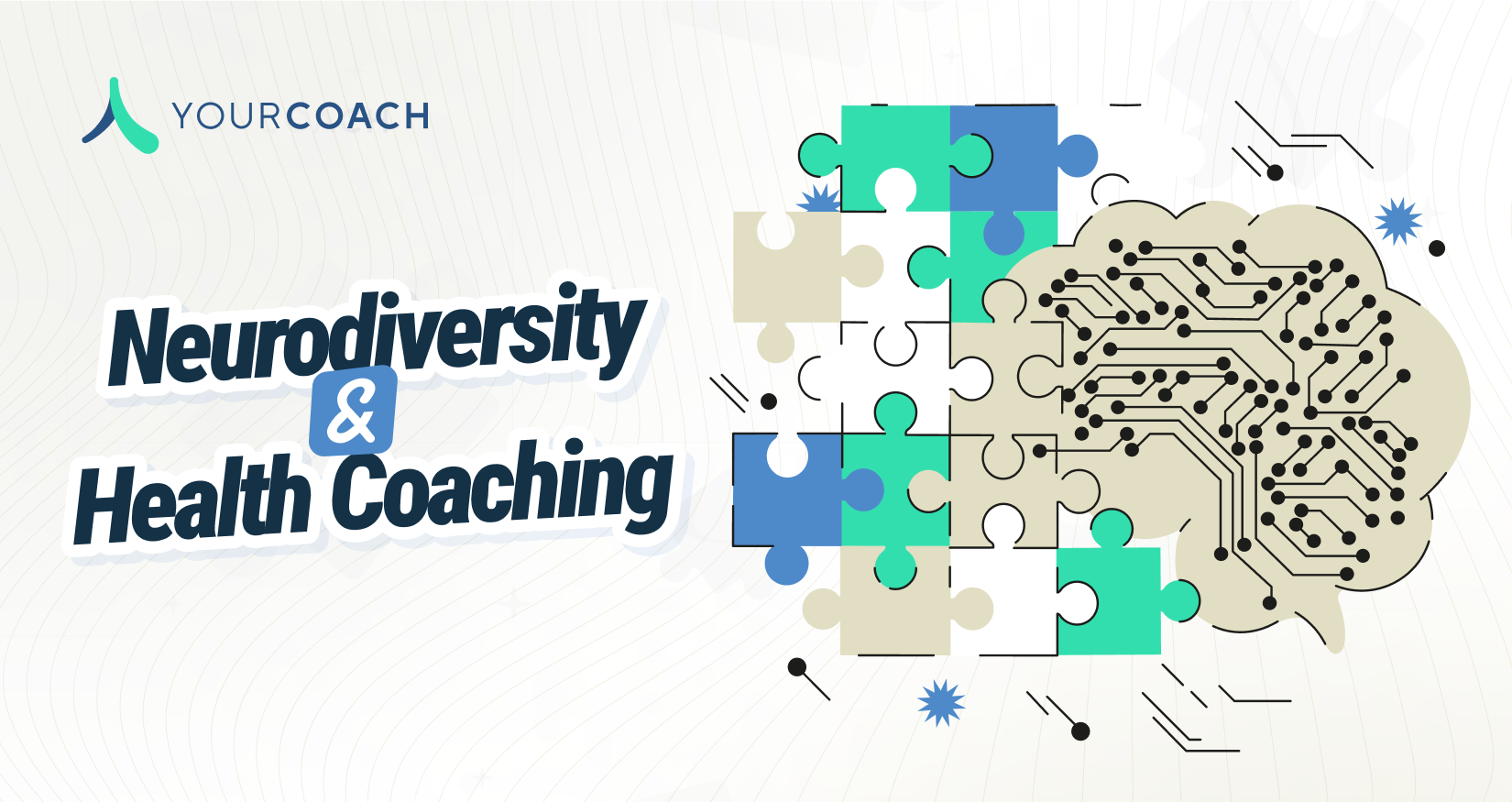
Health coaching is all about meeting people where they are, acknowledging and celebrating their uniqueness while helping them become their healthiest and happiest selves. A core part of this process is recognizing the rich diversity of how people think, feel, experience and process information. Many health coaches – and definitely those we work with at YourCoach to power up our partnerships – make educating themselves on coaching to diverse populations a priority.
Neurodiversity is a crucial part of this personalized approach to health coaching. Not only do health coaches adapt their communication styles and strategies to create programs that work best for different individuals but they’re also experts at creating truly supportive environments that align with each person’s cognitive strengths and needs. In today’s blog, we take a closer look at neurodiversity, how health coaches support neurodivergent individuals and why health coaching can be so helpful for those who identify as part of this spectrum.
What does it mean to be neurodivergent?
The neurodiversity movement started in the late ‘80s and early ‘90s as an effort to increase acceptance and inclusion while acknowledging our intricate neurobiological differences. At its core, neurodiversity is the concept that our brains all work a little differently – whether that’s the way we think, learn, behave, experience, internalize or feel. Neurodiversity recognizes these differences in brain function and cognition as part of the natural spectrum of human diversity rather than something that needs to be corrected or cured.
By nature of its definition, neurodiversity isn’t meant to represent any one condition or diagnosis. Instead, it includes an array of differences that may or may not be categorized by existing medical terminology which presently includes autism spectrum disorder (ASD); attention-deficit/hyperactivity disorders (ADHD); dyslexia and others.
How do health coaches empower neurodivergent individuals through health coaching?
Health coaching is meant to be deeply personal. That means every health coach will take a diligent approach to understanding preferences for regular sessions which includes communication modalities, goal tracking, motivation, and values. Coaches develop customized plans that align to the ways their clients process information, such as incorporating visual aids for those who benefit from them or breaking down tasks into smaller, manageable steps. They might incorporate more writing into sessions versus verbal communication or might employ the use of specific, supplemental tools or technology.
Beyond personalization, effective health coaching involves actively listening to clients and being adaptable to their evolving needs. Coaches regularly reassess and adjust plans based on feedback, ensuring that the strategies remain relevant and effective. They also engage clients in setting realistic, achievable goals that align with their personal values and long-term aspirations. Most importantly, health coaches always take a non-judgmental approach when working with clients. They foster a supportive environment that not only empowers clients to achieve their health goals but also educates and encourages them to self advocate for their health and wellbeing – this alone can be an invaluable personal and professional skill.
Why is this important?
Health coaching offers a unique and adaptable approach to health and wellbeing – it’s built to address distinct challenges while leveraging inherent strengths. Unlike one-size-fits-all solutions, health coaching tailors strategies to individual cognitive and emotional needs, making interventions more effective and relevant. Most importantly, this individualization paves the way for greater physical and mental health and wellbeing successes.
So why is this so important? While we’re still in the fairly early stages of research around neurodivergence and its impact on physical and mental health and wellbeing, conditions like neurodivergent burnout, which may lead to exhaustion and increased sensory sensitivity, are things health coaches can work to ameliorate.This sort of support that goes beyond doctor’s visits is irreplaceable and one of a kind.
At YourCoach, we work closely with employers to provide their workforce with health coaching services, via dedicated health & wellbeing coaches who’ve been validated, verified and up-skilled by our team. This includes having access to DE&I trainings and ongoing resources to ensure they’re equipped to support our diverse partnership populations. If you’re interested in learning more about how we can partner with your organization to deliver REAL and impactful health coaching to your evolving workforce, send us a note to team@yourcoach.health.


